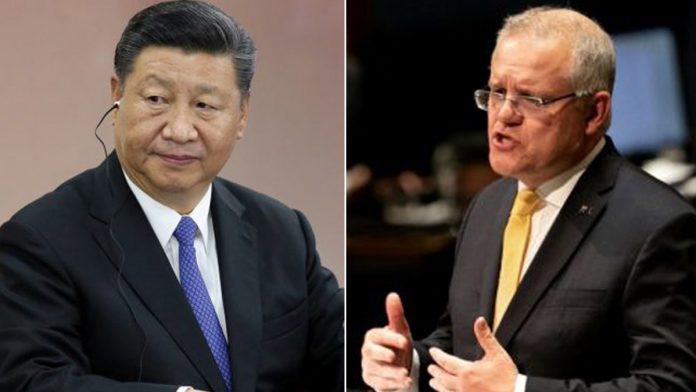China has one very consistent trait, and that is not learning from its mistakes. This has been proven time and again, and as China tried to placate Australia hours before the BRI deal was cancelled only to see its attempt fail terribly, nothing can be a more obvious example than this. The day Australia cancelled BRI deal, the Chinese deputy ambassador made a few last-ditch attempts at saving BRI’s fortune in the country.
He tried to placate Canberra by launching an ‘anti-China’ book in the down under country and even proposed that “we are open to collaboration” last-ditch attempts at saving BRI’s fortune in the country.
However, just afterwards Australia took a highly stringent decision. China was kicked out of every single sector in Australia. In its ambition to colonize the down under country, China had enthusiastically acquired the Van Dairy Group for a cost of $280 million in 2016. Now, however, the Chinese owners are being given rather extravagant kicks out of Australia. After having been called a gum which is stuck to China’s shoe, Australia is now showing the Chinese Communist Party how it uses its own shoes to land some major kicks right on Xi Jinping’s temple. Recent developments are proof that Prime Minister Scott Morrison is not willing to let China have the last laugh.
Just before the Australian government decided to cancel the BRI, Wang Xining, China’s deputy ambassador to Australia gave a speech with a sugar-coated tone to placate Canberra. Talking to the National Press Club, he took off from observing this was the year of the ox, a symbol of strength and perseverance.
“China is not a cow,” he said. “I don’t think anybody should fancy the idea to milk China when she’s in her prime and plot to slaughter it in the end. So we are open for collaboration and cooperation, but we’ll be very strong in defending our national interest.” Despite Wang’s jab at Australia for being “the first” to bar Chinese telecom equipment giant Huawei from its 5G mobile networks and then convincing Britain and other security partners to follow suit, it seemed to those in attendance that Wang was responding to a lull in Australia’s often shrill warnings about Chinese influence and espionage.
Another indication of easing prickliness was Wang’s participation in the launch of the new China Yearbook by the Australian National University’s China in the World Institute, whose scholars have frequently criticised President Xi Jinping’s leadership style and policies. However, all this placation and attempts were of no utility. Just a few hours later, Foreign Minister Marise Payne declared that Canberra would cancel two agreements signed by Victoria, the country’s second most populous territory, to participate in China’s Belt and Road Initiative. She stated that they were “inconsistent with Australia’s foreign policy or –adverse to our foreign relations,” but provided no further information.
Labor senator Kimberley Kitching, chair of the federal parliament’s Foreign Affairs, Defence and Trade References Committee, said the Victorian BRI agreement was part of a Chinese Communist Party strategy to bypass federal governments and create a “wedge” within a country.
